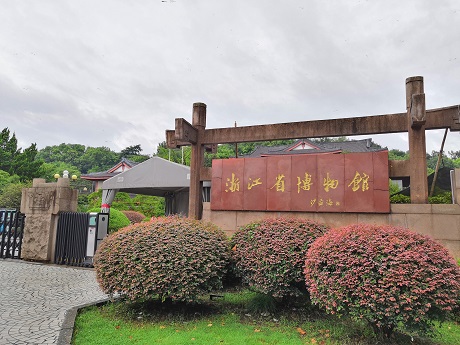
Practice 371
博物馆是否应当免费开放,这是当下热议的话题。主流媒体和非营利机构的管理者也都在讨论这个话题。有些人认为,博物馆不仅仅是娱乐休闲的地方,也是提供教育的地方,所以应该免费。他们说他们理解博物馆取得藏品维护藏品要花很多钱,但一个对艺术感兴趣的人,不论大人、还是小孩,因为钱的原因而不能去观赏这些艺术品,这在道义上是不对的。
My:
It's recently a controversial topic that the museums should either or not be open for free, which is talked about by both the main media and non-profit organizations. Some consider that they should be free for they are not only places for entertainment but also education. They say, although they understand the substantial cost of obtaining and preserving collections, it's immoral to make money the obstacle to appreciating those artworks of people interested in art ranging from children to adults.
Teacher's:
The debate over whether museums should be free is a big one right now. It's the source of a lot of discussion in the popular press and nonprofit boardrooms alike. Some people think that museums are not only there for enjoyment; they are education, and as such should be free. They say they appreciate the enormous costs involved in maintaining and obtaining collections, but the idea of a person or child interested in art not being able to view it because of cost is morally wrong.
—-知识点—-
- A and B alike, A和B都…
- the debate over whether…is a big one right now, 在…上的讨论是当下热议的话题。
- the source of a lot of discussion, 是…讨论的来源。
- as such, 照此。
- the enormous cost involved in… …的巨大成本。
- morally wrong, 从道义上来说是不对的。
Practice 372
博物馆免费不会吸引人来的,也不会鼓励人们来欣赏展品。例外肯定是有,不过一般来说人总是更重视难得到的或者是贵的东西。一个更好的做法是对于普通的参观者收费,而向学习成绩好的学生和真正想来博物馆的人提供免费的门票作为-种奖励。
My:
Museums will not attract or encourage people to come and appreciate collections if it's free. Generally, a man always treasures those which are hard to obtain or expensive, exceptions existing. It's a superior method that museums make charges from public visitors while offering free tickets, as a reward, to the students studying well and those who really want to come.
Teacher's:
Free entrance does not attract people, nor does it encourage them to appreciate it. Sure, there are exceptions to this, but by and large human beings tend to look up to things that are difficult or costly to access. A better option is to charge fees for regular visitors but provide free tickets as prizes for high-achieving students and others who are likely to appreciate the reward.
—-知识点—-
- free entrance, (博物馆)免费进入,是(博物馆)免费的另一种说法。
- appreciate it(museum), 参观博物馆,或欣赏博物馆的展品。
- exception, 例外。
- by and large, 一般来说,大体上来说。
- difficult or costly to access, 不易获得且需要花很多钱才能获得。
- a better option可用在作文中引出另一个更好的方案或者做法。
- charge fees for, 向…收费。
- regular visitors, 普通的参观者。
- high-achieving students, 学习好的学生。
Practice 373
博物馆需要很多的东西,比如售货机和影印资料。这些东西都不简单,参观者都需要。没有钱的话,这些东西没法弄。最重要的是,通过这些东西,学生可以学到很多科学知识和原理。这就是为什么博物馆不能免费。
My:
There are many essential items in museums, such as vending machines and photocopying data. None of these are easy and all of tourists need them. They cannot be obtained without money. Most importantly, students can learn pieces of scientific knowledge and principles through them. These are the reasons why museums cannot be open for free.
Teacher's:
Museums need lot of stuff such as vending machines and audiovisual materials. These kinds of machines are very complicated and benefit customers. These kinds of things cannot be run and developed without more budgets. Most of all, students can gain a variety of scientific knowledge and principles through them. That's why people need to pay admission fees with regular prices.
—-知识点—-
-
stuff, 东西。
-
vending machines, 售货机
-
audiovisual materials, 影印资料。
-
complicated, 复杂。但在本文的语境里,表示某项工作不好做,或者某项服务的提供不简单,需要一定的付出。
| sophisticated | 精致的,有经验的 |
| elaborate | 精巧的;精心制作 |
| complicated | 难懂的,复杂的 |
| intricate | 错综的 |
-
budget, 预算。但在本文的语境里指的就是某个组织可用的钱。读者可背记…cannot be done without more budgets.
-
a variety of, 很多的,各类的。
-
need to pay admission fee with regular prices, 需要用正常的价格付进场费。在本文的语境里可通俗的理解为“不应该免费”或“应该收钱”。读者注意,本周的三次节目中已给出大家两种“免费”或者“不免费”的同意替换:博物馆免费:free entrance; 不免费:people need to pay admission fees with regular prices.
Practice 374
博物馆提供文化活动,可以让一个国家的年轻人有学习的动力,让人们有更多的好奇心和探索欲。纯从自私的角度来说,企业和商人应当大力资助博物馆以及其他的文化场所,这样的话未来一代的工作的人会更有创造力,会把工作做得更好。
My:
By holding cultural activities, not only can museums motivate youngers of the country to study, but they can also make people more curious and more adventurous. For themselves, enterprises and businessmen should do their utmost to subsidize museums and other cultural places, which will render future workers more creative to behave better.
Teacher's:
Museums provide culture and inspire learning in the youth of a country, and lead to an increased sense of wonder and desire to explore. For purely selfish reasons, corporations and businessmen should strive to support museums and other cultural destinations, in hopes that generations of future workers are more creative and able to do good work.
—-知识点—-
-
provide culture, 提供文化活动。
-
inspire learning, 给人以学习动力。
-
youth, 年轻人。
-
lead to + n, 让人有… 读者注意,表达“让人有…”的时候,别只会用make people have…另外,这里的n可以被increased修饰,表示“让人有越来越多的….”
-
sense of wonder, 好奇心。
-
desire to explore, 探索欲。
-
for purely selfish reasons, 纯从自私的角度来说。
-
strive to do, 努力做。
-
support在本文的语境里不建议理解成“支持”或“帮助”,而是资助。
-
cultural destinations, 文化场所。不要直译为“文化的目的地”。
-
in hopes that, 做某事的目的是…